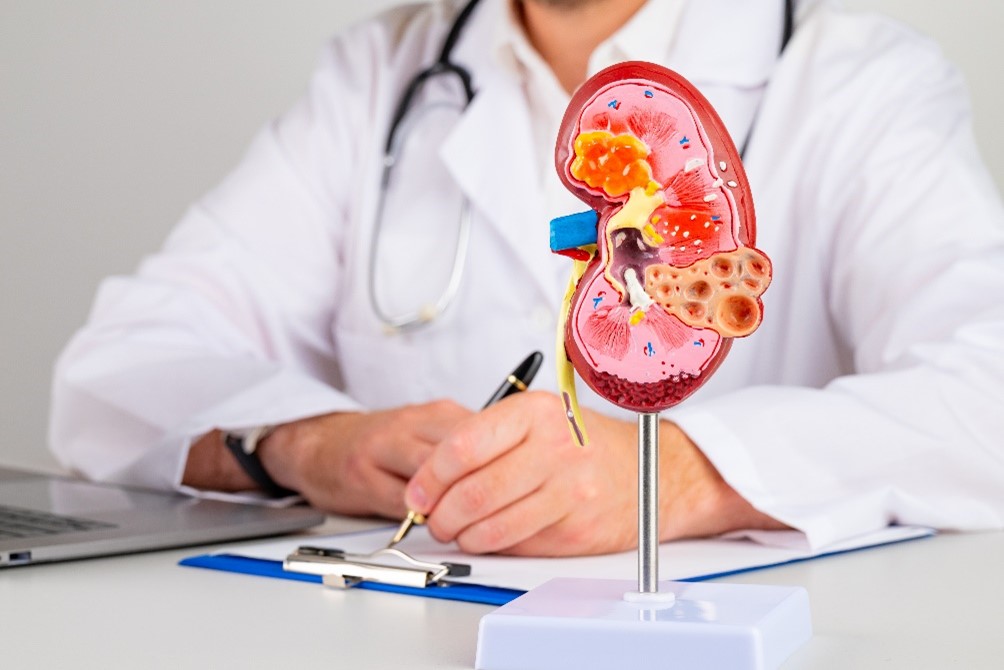Welcoming a new life into the world is a profound journey that brings both joy and challenges. For women grappling with kidney disease, the path to pregnancy requires careful consideration and specialized care. In this blog, we will delve into the intricate relationship between kidney disease and pregnancy, shedding light on symptoms, the connection between kidney disease and high blood pressure, home treatment options like dialysis, and the transformative potential of kidney transplants.
Understanding Kidney Disease and Its Symptoms:
Kidney disease, a condition affecting the vital organs responsible for filtering waste and excess fluids from the blood, can present a myriad of symptoms. Understanding these symptoms is crucial for individuals contemplating pregnancy. Symptoms of renal disease may include fatigue, swelling (edema), changes in urine output, and persistent itching. Recognizing these signs early allows for proactive management and informed decision-making regarding pregnancy.
The Interplay Between Kidney Disease and High Blood Pressure:
High blood pressure, or hypertension, is both a symptom and a complication of kidney disease. The two conditions often coexist, creating a complex interplay that poses additional challenges during pregnancy. Elevated blood pressure can exacerbate kidney damage and vice versa. Managing blood pressure becomes paramount for expectant mothers with kidney disease, requiring close monitoring and collaborative care between healthcare professionals.
Dialysis as a Home Treatment Option:
For individuals with advanced kidney disease, especially those on dialysis, the prospect of pregnancy introduces unique considerations. Dialysis, a treatment that replicates the kidney’s function of filtering blood, is crucial for maintaining overall health. Home treatment options for dialysis provide individuals with greater flexibility, allowing them to integrate treatment into their daily lives. However, the demands of dialysis, coupled with the rigors of pregnancy, necessitate careful planning and coordination between healthcare providers and expectant mothers.

The Transformative Potential of Kidney Transplants:
Kidney transplants offer a transformative solution for individuals with kidney disease, providing a chance for improved quality of life and the potential for pregnancy. However, the decision to conceive after a kidney transplant requires careful consideration. The first-year post-transplant is a critical period, ensuring stable kidney function before contemplating pregnancy. Medications post-transplant may pose risks to a developing fetus, emphasizing the importance of close communication with healthcare providers to adjust medications and optimize conditions for a healthy pregnancy.
Preconception Planning and Collaborative Care:
Preconception planning is a cornerstone for women with kidney disease and pregnancy. Collaborative care involving nephrologists, obstetricians, and other specialists ensures a comprehensive understanding of the individual’s health and potential risks. Monitoring kidney function, blood pressure, and addressing symptoms become integral components of preconception care. Open communication between patients and healthcare providers facilitates informed decision-making and personalized plans for a successful pregnancy.
Navigating Pregnancy with Kidney Disease:
Pregnancy induces significant physiological changes, impacting kidney function and blood pressure. For women with kidney disease and pregnancy, these changes can pose challenges, necessitating vigilant monitoring throughout the gestational period. Adjustments to medications, dietary considerations, and lifestyle modifications become essential elements in managing the delicate balance between maternal and fetal well-being.
Home Dialysis and Pregnancy:
For individuals on home dialysis, the prospect of pregnancy involves careful coordination between treatment regimens and maternal health. Home dialysis offers the advantage of flexibility, allowing expectant mothers to integrate treatment into their daily routines. However, close collaboration with healthcare providers is vital to optimize dialysis conditions, ensuring the well-being of both mother and baby.

Managing High Blood Pressure during Pregnancy:
High blood pressure is a common complication in individuals with kidney disease, and its management becomes paramount during pregnancy. Monitoring blood pressure regularly, adhering to prescribed medications, and adopting lifestyle modifications contribute to maintaining a healthy blood pressure level. The collaborative efforts of healthcare providers and expectant mothers are crucial in navigating this aspect of kidney disease during pregnancy.
Addressing Complications and Risks:
While many women with kidney disease successfully navigate healthy pregnancies, the risk of complications remains. Preeclampsia, gestational diabetes, and preterm birth are potential challenges that require careful monitoring and prompt intervention. The severity of complications often correlates with the stage and severity of kidney disease, emphasizing the need for individualized care plans.
Nutritional Considerations:
A well-balanced diet is fundamental for all pregnant women, but it holds additional significance for those with renal disease. Dietary restrictions may be recommended to manage specific aspects of the condition, such as protein intake and sodium levels. Nutritionists play a pivotal role in developing personalized meal plans that support both maternal health and fetal development.
Emotional and Mental Well-being:
Pregnancy encompasses both a physical and emotional journey. For women facing the complexities of kidney disease, the added stress can impact emotional and mental well-being. Crucial support from healthcare professionals, as well as family and friends, is essential. Counseling services can provide coping strategies and emotional support, contributing to a more positive pregnancy experience.
Community Support and Advocacy:
Building awareness about the intersection of kidney disease and pregnancy is essential for fostering a supportive community. Advocacy efforts contribute to reduced stigma, improved access to resources, and enhanced understanding of the challenges faced by individuals navigating these dual aspects of health. Online communities and support groups play a crucial role in creating a network of shared experiences and mutual support.
In navigating the complex landscape of kidney disease and pregnancy, education, proactive management, and collaborative care are key. The transformative potential of pregnancy for individuals with kidney disease is achievable with careful planning, open communication, and personalized approaches. By shedding light on the symptoms, the connection with high blood pressure, home treatment options like dialysis, and the transformative potential of kidney transplant, we empower individuals to embark on the transformative journey of motherhood with resilience and confidence, ensuring the health and well-being of both mother and child.

